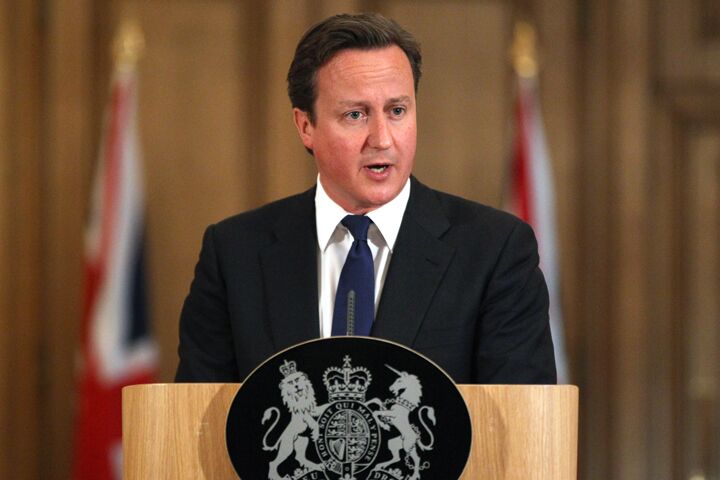
Economic Crisis Turns Britain Against EU
Fifty percent of Britons would vote to leave the European Union if given the option in a referendum, according to a YouGov@Cambridge and Politics Home poll published July 13. Only 33 percent would vote to stay.
Thirty-four percent said that the Greece financial crisis had made them more favorable toward a British withdrawal from the EU.
The poll indicates that Britain’s opposition to the EU hasn’t changed much—a YouGov poll last September found that 47 percent would vote to leave the EU and 33 percent to stay. But it does suggest that opposition to the EU has been hardened by the crisis.
What’s more, the euro crisis could provide Britain the opportunity to renegotiate its membership. In an interview with the Spectator published July 7, British Prime Minister David Cameron said the eurozone will have to move “towards much more single economic government.” He sees this as a chance for Britain to change its relationship with the EU. “‘There will be opportunities for Britain to maximize what we want in terms of our engagement with Europe,” he said.
The Spectator commented: “These words represent quite a shift in the British position. Until recently, the coalition line has been that because a stable eurozone was in Britain’s interests, we wouldn’t capitalize on any crisis to pursue a narrow national advantage. Now Cameron is talking explicitly about ‘opportunities’ and how to ‘maximize what we want.’”
Political commentators agree. “First for the rather dramatic bad news: A United States of Europe will come into being by the end of the year, perhaps even by the end of the summer,” wrote Patrick O’Flynn in the Daily Express on July 13. “Now for the good news: Britain won’t be part of it.”
He warned that by the end of this crisis Germany will “have gained greater European domination through financial measures than ever it did by force of arms.”
He too focused on the prime minister’s comments in the Spectator. “This is tremendously significant because in the old days British governments were fiercely opposed to what was known as a ‘multispeed Europe’ in which we would tootle along in the slow lane while others zoomed ahead towards full integration,” he wrote. “Now our prime minister is actually predicting imminent zooming ahead towards integration among eurozone members and saying that as this happens we will be in reverse gear—winning sovereign powers back from Brussels. This is not just a multispeed Europe, it is a multi-direction Europe.”
He concluded by saying: “As our political class desperately resists demands for a referendum on departing from the EU, a startling new possibility is emerging: that well before we see Britain leaving Europe, we are going to see much of Europe leaving Britain.”
This is something the Trumpet has been forecasting for years. With the financial crisis coming to a head, the EU seems poised to go through a critical transformation, where many of the Trumpet’s predictions will be realized.
